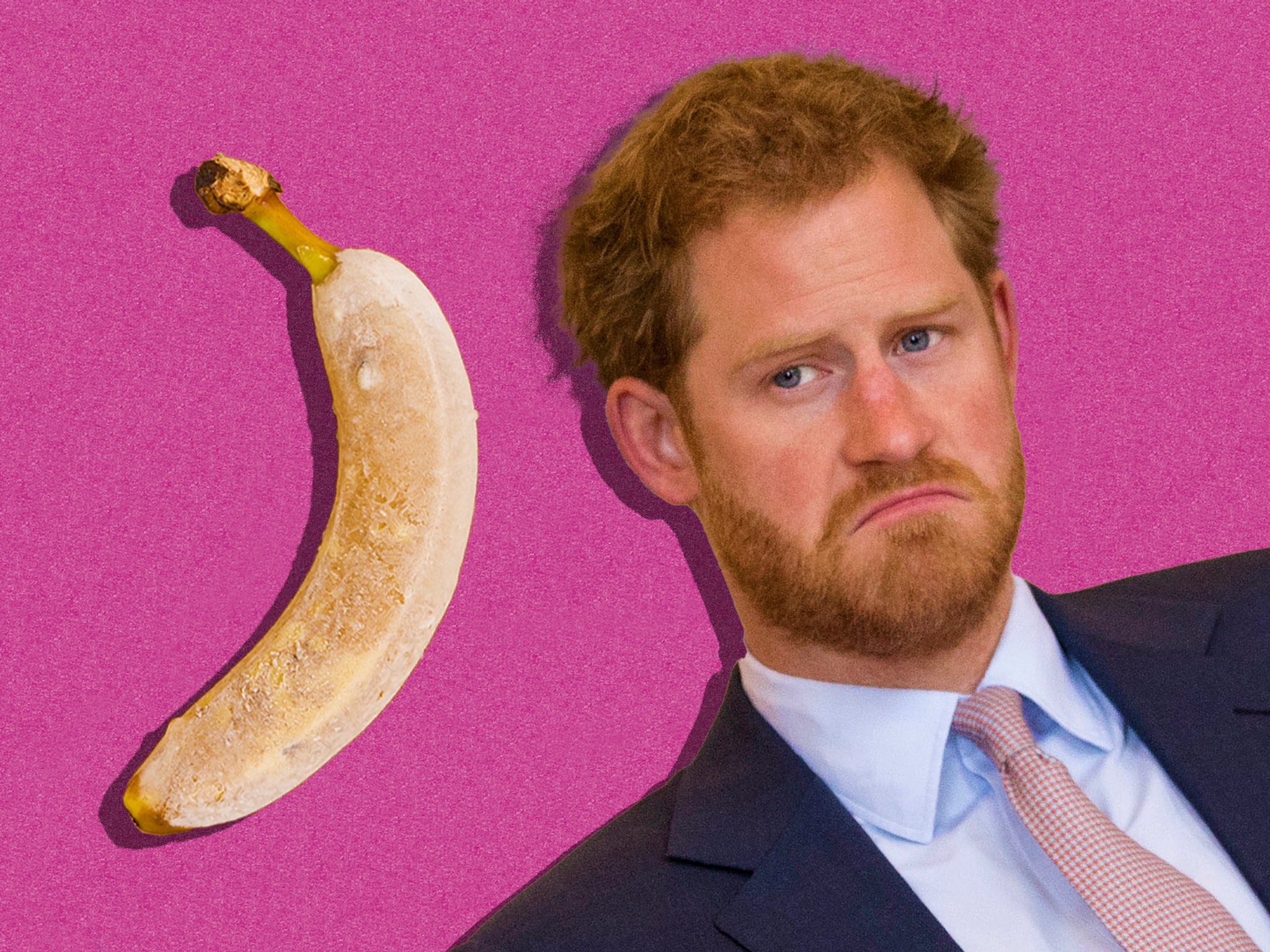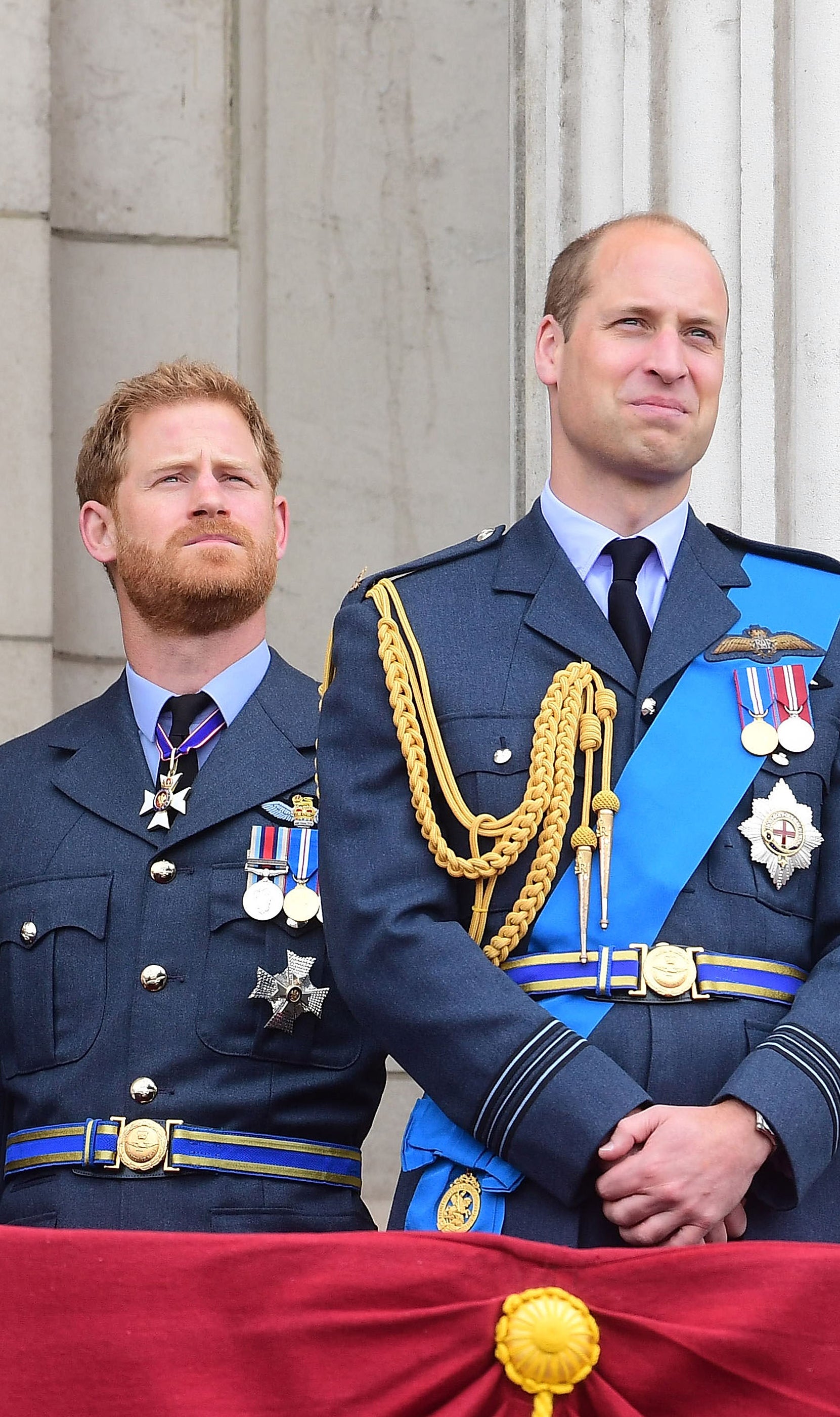Why do oversharers like Prince Harry insist on telling us everything?
In his inescapable memoir ‘Spare’, Prince Harry tells us absolutely everything – from the time he got his todger frozen to his kill count in Afghanistan. Ben Bryant speaks to experts about why some people can’t help but overshare


Your support helps us to tell the story
From reproductive rights to climate change to Big Tech, The Independent is on the ground when the story is developing. Whether it's investigating the financials of Elon Musk's pro-Trump PAC or producing our latest documentary, 'The A Word', which shines a light on the American women fighting for reproductive rights, we know how important it is to parse out the facts from the messaging.
At such a critical moment in US history, we need reporters on the ground. Your donation allows us to keep sending journalists to speak to both sides of the story.
The Independent is trusted by Americans across the entire political spectrum. And unlike many other quality news outlets, we choose not to lock Americans out of our reporting and analysis with paywalls. We believe quality journalism should be available to everyone, paid for by those who can afford it.
Your support makes all the difference.My foreskin is too tight,” a friend once shared to the group in the pub. “And every time I try to have sex it’s just extremely awkward.”
On the face of it, there is nothing funny about this – but people laughed anyway. Perhaps because it’s a curveball to hear something so vulnerable – tragicomic, even – and far beyond the humdrum register of normal pub conversation. The laughter wasn’t a dismissal; our friend was heard sympathetically. But the problem had to be treated with levity first. For some reason, it would have been far worse if nobody had acknowledged that.
The memory of my friend’s problem (now happily resolved) was brought into sharp relief this week by Prince Harry’s disclosures in his memoir Spare, which have been described by many as “oversharing”. The most criticised passages include the revelation that he killed 25 men during his second tour in Afghanistan, descriptions of private conversations with close family members, and the declaration that he was suffering from a frostbitten “todger” at his brother’s wedding.
For Harry, this seems to be a rebellion against a lifetime of silence – with a therapeutic purpose.
“I know from my own healing journey that silence has been the least effective remedy,” he told US magazine People this week, justifying his decision to reveal that he had killed 25 fighters. “Expressing and detailing my experience is how I chose to deal with it, in the hopes it would help others.”
“There’s truly no right or wrong way to try and navigate these feelings,” he added.
Harry is right to suggest that that there is no objective measure of what is or isn’t appropriate to share. It’s all about context, according to Dr Tara Quinn-Cirillo, a chartered psychologist with the British Psychological Society. “If someone came to me and said they had been told they are oversharing, I would ask: what’s your baseline? Do you overshare with family and friends? Do you do it at work? What’s made you do it now if it’s new?”
When trauma is unprocessed, sharing can be an attempt to get those things recognised and bring them out into the open
A judgement of “oversharing” is typically informed by the person making it, their relationship with the possible oversharer, and wider social norms. It can be an accusation that’s made maliciously, in order to humiliate or shame someone. But it can also be an indication that something is off.
“As a psychologist, we try and find out the function of their behaviour. What is it they want to do by sharing this information?” says Dr Quinn-Cirillo, who prefers to avoid using the term “oversharing” altogether.
The range of motivations can be very large. Conditions such as personality disorders or autism spectrum disorder can affect people’s inclination to share, or their understanding of what is appropriate to share. In the case of someone with a book to sell – or an article to write – there can be commercial incentives.
And in some cases, what appear to be embarrassing overshares may conceal narcissistic motives. There are lots of names for this online – expressions like “humblebrag” allude to the hidden status-related motives that lie behind superficially damaging public statements. A closer look at Harry’s anecdote about his “frostbitten penis”, for example, reveals that he is actually talking about something that happened on a 200-mile Arctic charity walk – a gentle boast, perhaps.
“Every human behaviour will have a function,” says Dr Quinn-Cirillo. “But sometimes you’ve just got to dig around to find it.”
In the case of Harry, the accusation of oversharing seems to stem from the belief that he has gone above and beyond score-settling into lurid reporting of conversations that should have remained private. The revelation of the then Prince Charles’s plea to his sons at his father’s funeral to not make his “final years a misery” was considered a particularly grave overstep by some commentators.
“People tend to see oversharing in media articles in a negative way,” says Dr Quinn-Cirillo. “But actually, the ulterior motive can be the feeling that we have been misrepresented, so a person might feel the need to step outside of their normal boundaries of sharing, and share a bit more, in order to get their point across.”

But not all disclosures have clear motives. Those embarrassed or annoyed by a friend’s oversharing should be careful about second-guessing their intentions or stigmatising their behaviour, according to Dr Kirren Schnack, a clinical psychologist.
“In my experience, most people overshare information because it brings their problems out into the open,” says Dr Schnack. “So the issues that have been unrecognised, and the trauma that is unprocessed. And often people do it because this stuff is unresolved, unprocessed, it’s not been acknowledged, nobody has validated what’s happened.”
Not everybody knows what to do when people share details of trauma – and that, in turn, can isolate the person doing the sharing.
“The more out-there or crazy the content of what you’re sharing, the more you are likely to be stigmatised,” says Dr Schnack. “But the level of detail that is being shared is likely indicative of the level of suffering that the person has gone through or is still stuck with.” The problem is that “socially, this is not acceptable, because people don’t know what to do with it”.
Sharing can be a compulsion born out of suffering. This kind of behaviour is sometimes interpreted as attention seeking – but that is a misunderstanding of its function, according to Dr Schnack.
“When trauma is unprocessed, sharing can be an attempt to get those things recognised and bring them out into the open,” says Dr Schnack.
Traumatic information can “play on repeat” in people’s minds, and can be triggered by anything that resonates with the memory. But if traumatic memories are processed correctly, the compulsion tends to subside.
“When you process trauma, the memory stays intact, but the heat has gone,” says Dr Schnack. “So you can think back to traumatic events, and you can talk about them, but they don’t cause you pain and suffering any more.”

A person who compulsively announces their traumas may be trying to process traumatic memories. In the case of a victim of abuse, sometimes an admission of guilt from the perpetrator is enough.
“If somebody admits that they did wrong to you, then your brain can make sense of what happened and file it away,” says Dr Schnack.
But if that never happens, or if there is no abuser to blame, treatments such as trauma-focused cognitive behavioural therapy (CBT) or eye-movement desensitisation and reprocessing (EMDR) – which Harry has reportedly undergone – can also help people to process traumatic memories.
British people are stereotypically bad at responding to disclosures of trauma, so there are positive aspects to Harry’s honesty. It is a good thing that he is able to discuss the value of therapy, and that more people are made aware of CBT and EMDR. Harry seems to regard the publication of his memoir as a positive act generally, because it is – as he repeatedly stresses – an honest account.
“I’m not sure how honesty is burning bridges,” he told Tom Bradby in an interview with ITV this week. “You know, silence only allows the abuser to abuse.”
But the problem is that those discredited by some of Harry’s more accusatory disclosures are unable – or unwilling – to respond in the same manner.
“Total honesty does burn bridges,” says Dr Schnack. “People don’t like to be accused of something and not have the opportunity to present their alternative. Nobody ever wants to own the label of the abuser. And the person who he’s accused of doing the wrong thing will always have their own account, and narrative, and understanding of that story.”
The problem for Harry is that oversharing may not always inspire others to share in turn. From his frostbitten “todger” to taking chunks out of his stepmother, Harry’s tolerance for talking about minute details of his life is very different from that of his relatives. It has to be left up to the individual to decide on what is oversharing and what is not – but where relationships are at stake, everyone must bear the consequences.



Join our commenting forum
Join thought-provoking conversations, follow other Independent readers and see their replies
Comments